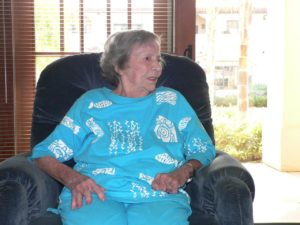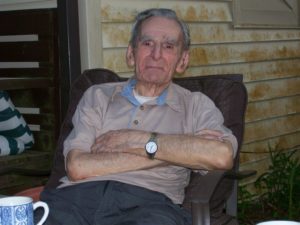 If you need an Elder Abuse Lawyer or Guardianship Lawyer – a lawyer experienced in particular in proceedings in the Guardianship Division of NCAT, call our Elder Abuse Lawyers on (02) 9533 2269. We regularly advise the elderly and their relatives, carers and friends, in relation to proceedings in NCAT – Guardianship Division, and appear in those proceedings that may be for Guardianship Orders or Financial Management Orders, or both.
If you need an Elder Abuse Lawyer or Guardianship Lawyer – a lawyer experienced in particular in proceedings in the Guardianship Division of NCAT, call our Elder Abuse Lawyers on (02) 9533 2269. We regularly advise the elderly and their relatives, carers and friends, in relation to proceedings in NCAT – Guardianship Division, and appear in those proceedings that may be for Guardianship Orders or Financial Management Orders, or both.
If you or your family member (or friend) is being subjected to any form of elder abuse, there are steps you can take. First and foremost, if you or someone you care about is at immediate risk, we recommend you call the Elder Abuse Hotline on 1800 628 221. Of course, if any criminal offence is being committed against an elderly person, we recommend that you call the Police.
Warning signs and ‘red flags’ identified by the Elder Abuse Hotline that might indicate elder abuse include:
- Caregiver won’t let you talk to the older person alone
- Delay in seeking care
- Body language
- ‘Doctor shopping’ (that is, seeing multiple doctors for the same issue)
- Sudden change in behaviour
- Decisions being made which don’t seem appropriate for the older person
- Stories are not consistent
- Previous reports of abuse
- The older person reports someone is accessing their accounts, or money is disappearing
 There is no single risk factor that would indicate the possibility of elder abuse. In a majority of cases where abuse occurs, there are several risk factors which, in combination, lead to or make it more likely that abuse is happening.
There is no single risk factor that would indicate the possibility of elder abuse. In a majority of cases where abuse occurs, there are several risk factors which, in combination, lead to or make it more likely that abuse is happening.
The Elder Abuse Hotline identifies a number of risk factors for a person being, or likely to be at risk of being, abused.
So who is at heightened risk of abuse?
Older people who:
- Are socially and geographically isolated and lack connection with their neighbours, family and/or community
- Are dependent on others for their care
- Have insecure or inadequate accommodation
- Lack capacity and ability to self advocate – may be confused about their property, bills, belongings and/or surroundings
- Have financial difficulties
- Are in poor physical health/frail
- Have family conflict or dysfunction
- Are living with domestic violence
Who is likely to be an abuser?
In our experience, it is much more difficult to identifier risk factors to identifier possible potential abusers. In our experience, they come in all shapes and sizes and from all walks of life. They are people who are in a position to exercise control of some description over an elderly person. Their motivations may seem to be many and varied, but at their core the motivations usually stem from monetary gain or simply exercising control, usually to the exclusion of others.
Abusers may have issues themselves, such as one or more of the following:
- Being stressed, burdened or feeling resentful of the caring role
- Feeling a lack of recognition or appreciation
- Lacking skill in the caring role
- Physical or emotional frailty (e.g. where one elderly person is caring for another without adequate supports)
- Being dependent on the elderly person in some way – whether financially or emotionally
- Carer stress and over-dependence
- Lack of respite care
- Carer isolation
- Caring for more than one person (e.g. looking after both parents, or caring for an elderly person as well as for children)
- Having a history of drug and alcohol abuse
- Having gambling and or/financial problems
- Having cognitive impairment or mental health issues
- Experiencing challenging behaviours from the person they care for, and reacting inappropriately to those behaviours
- Lacking support from family, friends, community or the service system
- Experiencing cultural issues (multiple carers, over-dependency, lack of understanding of the Australian system, having a history of trauma or abuse, and/or isolation from cultural activities or interaction)
- Having a history of family violence, as a victim or perpetrator.
However, abusers of the elderly may have none of these risk factors at all.
Elder Abuse can present in many forms. It can be categorised in the same manner as other forms of abuse, but is most often in the forms of:
- Physical Abuse
- Psychological Abuse
- Financial Abuse
- Social Abuse – alienating the person from others
- Neglect
These abuses can be caused by anyone in any type of relationship with the elderly person, for whom the elderly person has an expectation of trust, or reliance, or dependence. A perpetrator could be anyone that is known to the elderly person, although it is often a family member or friend.
 Many elderly victims are at a stage in their lives where they may need extra care to function on a day to day basis.
Many elderly victims are at a stage in their lives where they may need extra care to function on a day to day basis.
It is unfortunately not as uncommon as we would like to think, for often stressed and overburdened carers to slip into an abusive role. But as we said earlier, there are other motivations for elder abuse that have nothing to do with carer stress.
If there are proceedings in relation to you or an elderly person known to you, call our Elder Abuse Lawyer on (02) 9533 2269 for advice and legal representation – our Guardianship Lawyer and Financial Management Lawyer can help you!